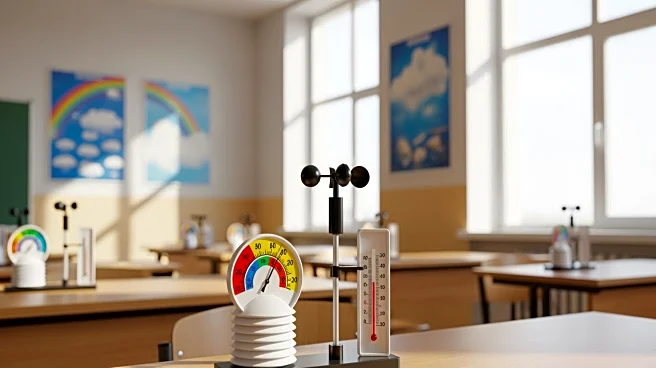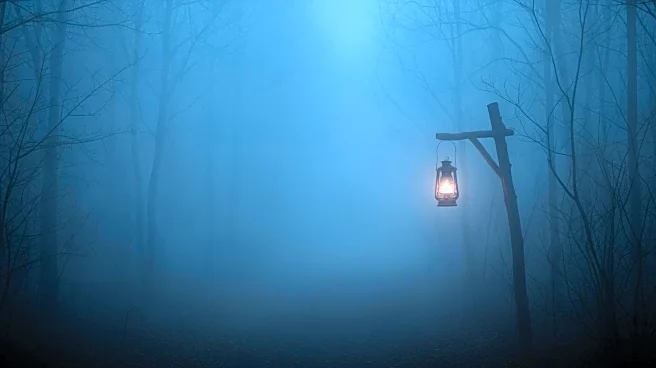What's Happening?
WBZ-TV's Jacob Wycoff conducted a field trip to several elementary schools in Wayland, Massachusetts, including Happy Hollow Elementary, Loker Elementary, and Claypit Hill Elementary School. The visit was part of the WBZ Next Weather School initiative,
aimed at educating young students about weather phenomena and the science behind meteorology. During the visit, Wycoff engaged with students, providing them with interactive lessons and demonstrations to enhance their understanding of weather patterns and forecasting techniques. The initiative is designed to inspire interest in science and meteorology among elementary school students, fostering a new generation of weather enthusiasts.
Why It's Important?
The WBZ Next Weather School initiative plays a crucial role in promoting STEM education among young students. By introducing children to meteorology and weather science, the program helps cultivate early interest in scientific fields, which is essential for developing future professionals in these areas. This educational outreach can have long-term benefits for the students, encouraging them to pursue careers in science, technology, engineering, and mathematics. Additionally, understanding weather patterns is increasingly important in the context of climate change, making this initiative timely and relevant.
What's Next?
Following the successful field trip, WBZ-TV may continue to expand its Next Weather School program to other schools in Massachusetts, aiming to reach a broader audience of young students. The initiative could potentially include more interactive elements and collaborations with local meteorologists to provide students with hands-on experiences. Schools and educators might also integrate weather science into their regular curriculum, leveraging the resources and knowledge provided by the program to enhance their teaching methods.
Beyond the Headlines
The initiative highlights the importance of community engagement by media organizations, showcasing how they can contribute positively to local education. It also underscores the role of local television stations in fostering educational opportunities and supporting community development. By focusing on weather education, the program addresses a critical area of knowledge that is vital for understanding environmental changes and preparing for future challenges related to climate and weather.
















